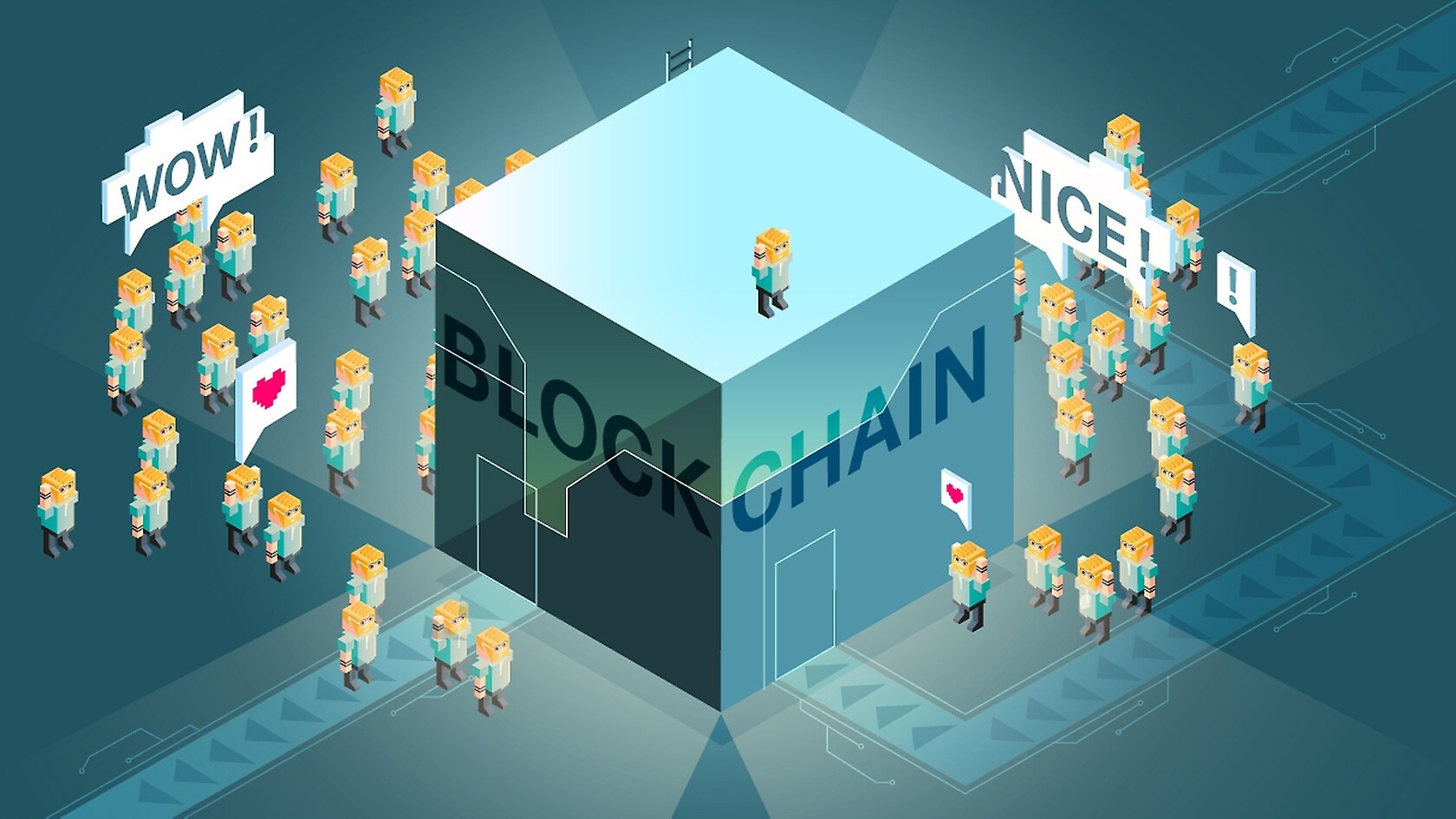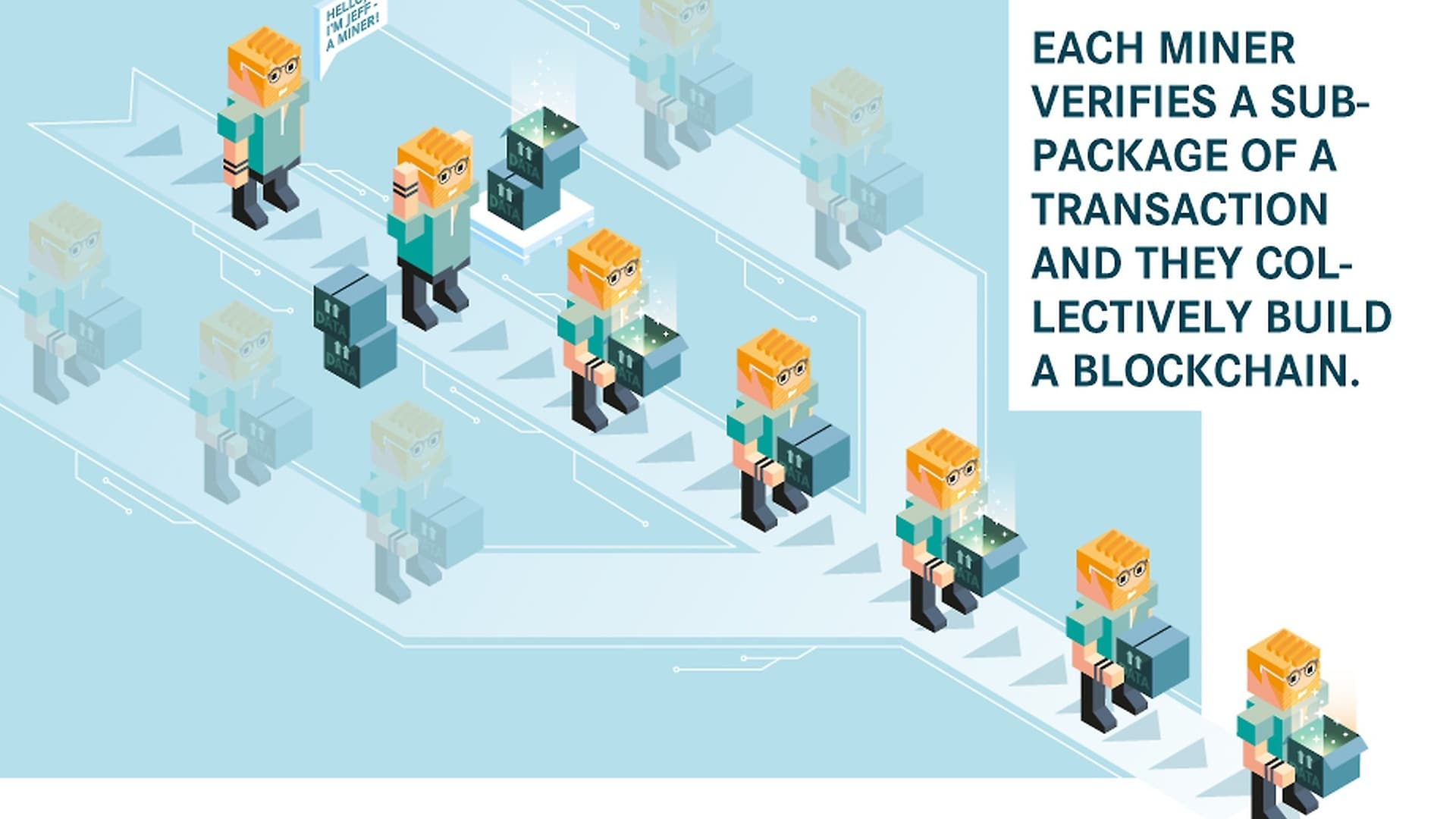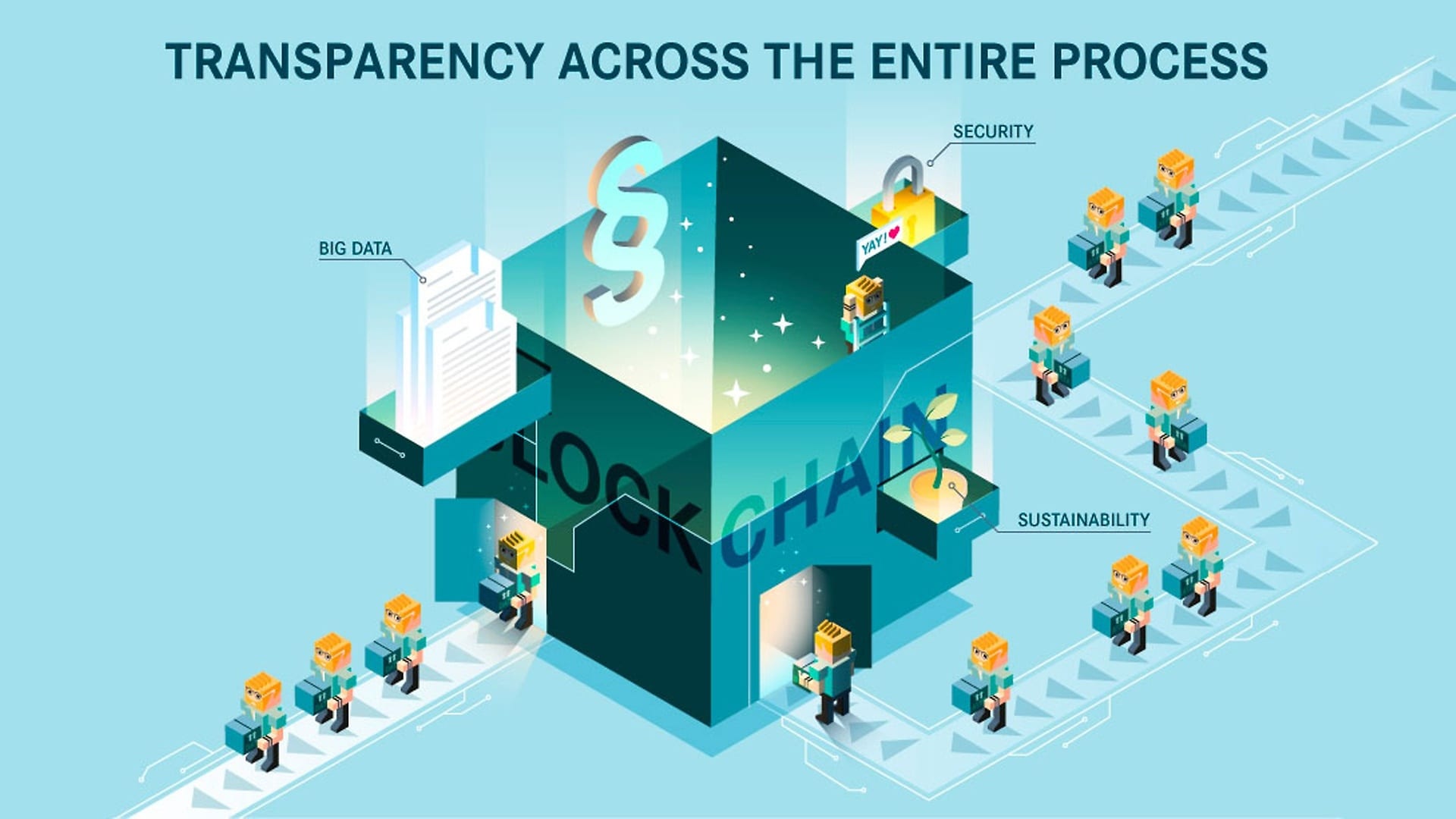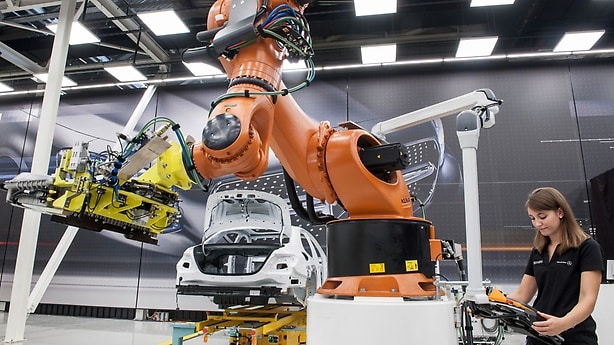Blockchain is breaking the chains of its niche-like nature: more and more companies are relying on safe, decentralised encoding technology – be it with financial transactions or with what we now call smart contracts. Blockchain has already been researched and implemented in several areas at Mercedes-Benz too. A pilot project for supply chains with Mercedes-Benz has recently been added to this.
For many people the blockchain principle is an inaccessible gate with many locks – and it really does come really close to this level of security, but more about that later. The fact is, however, that this technology is approaching the breakthrough that many experts have been conjuring up for years. At the popular South by Southwest (SXSW) digital and creative conference that took place once more in mid-March in Austin, Texas and was sponsored by Mercedes-Benz among others, “Blockchain and Cryptocurrencies” was one of the most important subjects. SXSW offered its visitors 48 special presentations and workshops on this. Further events touched on the edge of this subject. Dieter Zetsche was already able to learn something about Blockchain at the SXSW in 2017. Of course it was also about digital money such as Bitcoin and its advantages – for example with micropayment, the safe and free-of-charge transfers of very small amounts – in 2019. But some totally new applications were also presented. Including a secure app for participating in the US presidential elections or a blockchain protocol that should improve the cannabis production allowed in some States in the USA. The options appear to be unlimited.
Information is laid out like pearls on a chain
But what is so revolutionary about this innovative encoding technology? To understand this, a distinction from the analogue world needs to be made. Here many transactions – be they of asset values or services – are centrally controlled or monitored. In the finance sector this function is carried out by banks, for administrative services it is done by government authorities, for example. And in digital communication all messages run through the central servers of large companies such as Facebook. The idea behind blockchain is currently that these control tasks are distributed among many decentralised participants, known as miners. The global and cryptographically encoded blockchain network generated this way stores parts of a transaction at many different locations within the network, which in turn ensures that no-one has direct control of the whole transaction. This makes it both extremely secure and generally applicable, transparent and comprehensible at any time.
In short: blockchain technology can be deployed for all purposes where data is to be transferred quickly and cheaply without any central intermediary. This automatic safe custody of one’s own values and the anonymity simulated through cryptography are two of the main arguments made by proponents of cryptocurrencies such as Bitcoin here – and the great advantages of a blockchain.
A role for blockchain in mobility
In the not-too-distant future, millions of (autonomous) vehicles and networked sensors will be communicating with each other, to exchange information about vehicle status, use of charging points, parking spaces and roads as well as any repair orders – and to automatically protocol this and pay for it by micropayment. As, because each block is no more than a cluster of bits, conditions can be embedded directly within the transactions. These are known as “smart contracts”. Only when certain conditions have been fulfilled – when a given price has been paid, a vehicle serviced, a spare part is recognised as an original, for example – is the order carried out. All this happens without any human intervention.
Mercedes-Benz has already been involved in this promising new platform technology for a few years now. Pilot projects have been developed together with start-up companies and hackathon events have been organised. There is even our own Blockchain factory
Blockchain strengthens supply chains
Mercedes-Benz Cars has recently developed a blockchain prototype, together with Icertis,
Well-advanced research
Beyond that, Mercedes-Benz is currently researching the advantages of blockchain technology in three strategic sectors. The first area concerns a universal platform for the operation of mobility as a service (MaaS). As Harry Behrens, Head of the Blockchain Factory at Mercedes-Benz Financial Services
The second large area of research concerns the digitalisation of contracts and other regulatory documents. As Mr Behrens stated, we find ourselves still in the experimentation phase here, as the electronic contracts are not legally binding in a court of law. “Just imagine what would be possible if things such as ownership rights to a vehicle could become electronically signed and legally valid by means of a small, intelligent piece of software embedded in each document! That would save an enormous amount of administrative expenditure.”
The third area where blockchain technology will have an impact is in the way projects are financed and revenues distributed. Instead of raising capital in the traditional way, blockchain will enable the “tokenisation” of asset values or services. This means that projects could be divided into small virtual shares and these could be sold, bought and traded. As an example, if an electric charging station is financed this way, several actors (owners, operators or investors) can possess tokens in this asset value. Its revenues can then be calculated and automatically paid out to all parties each time a charging process is concluded. “Blockchain can open up billions worth of new markets – markets which we couldn’t even imagine existing today”, said Mr Behrens, the DFS expert.
Challenges along the way
In spite of all this euphoria, there is still a lot of work for the developers to do. The blockchain technology in its current form is not sufficiently fast or scalable. Most blockchains can only process a handful of transactions in parallel. In comparison, a traditional credit card network can process ten thousands of transactions at the same time. In consequence of its distributed validation structure involving countless miners, all of whom need processing power, a great deal of energy is required for the calculation, distribution and encoding of each transaction. So it is not yet worth changing everything over to crypto technology. In many cases, a normal, protected database is totally sufficient. But the blockchain path appears to be preordained. Its current state of development is comparable with the internet from the early 1990s. But technical problems such as speed and ease of use will be solved faster than at that time. The network is already there. The opportunities are unlimited.





